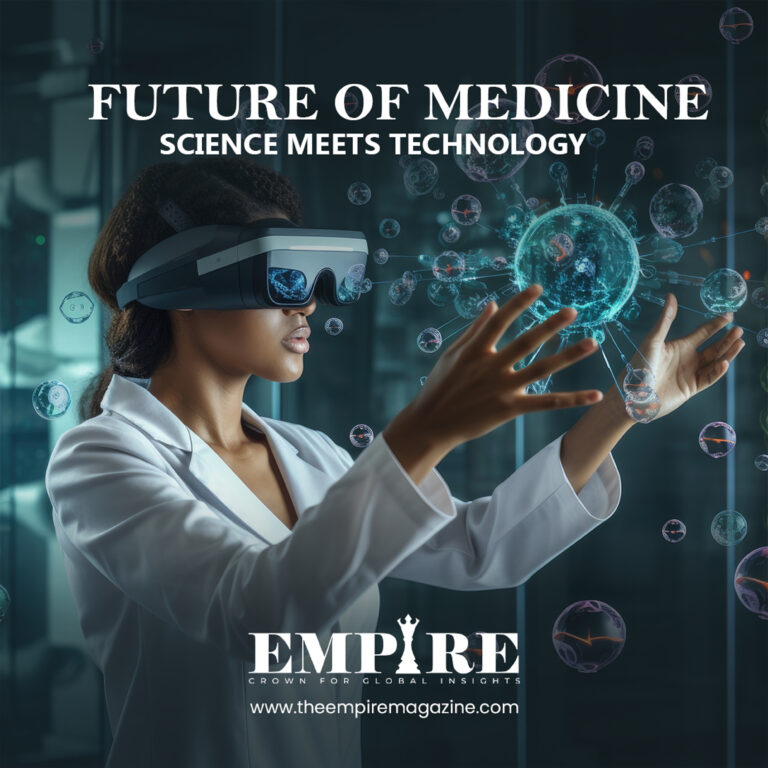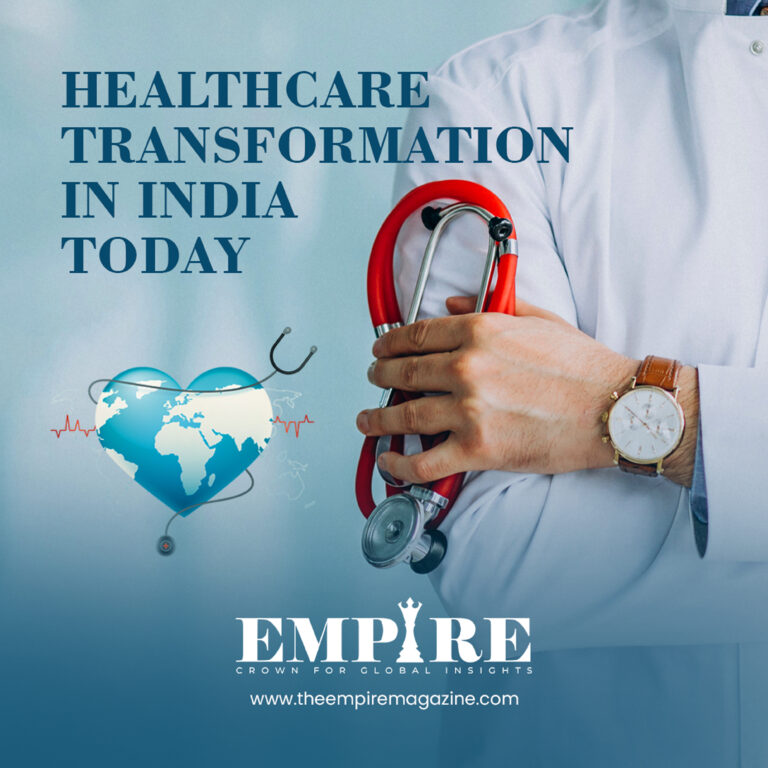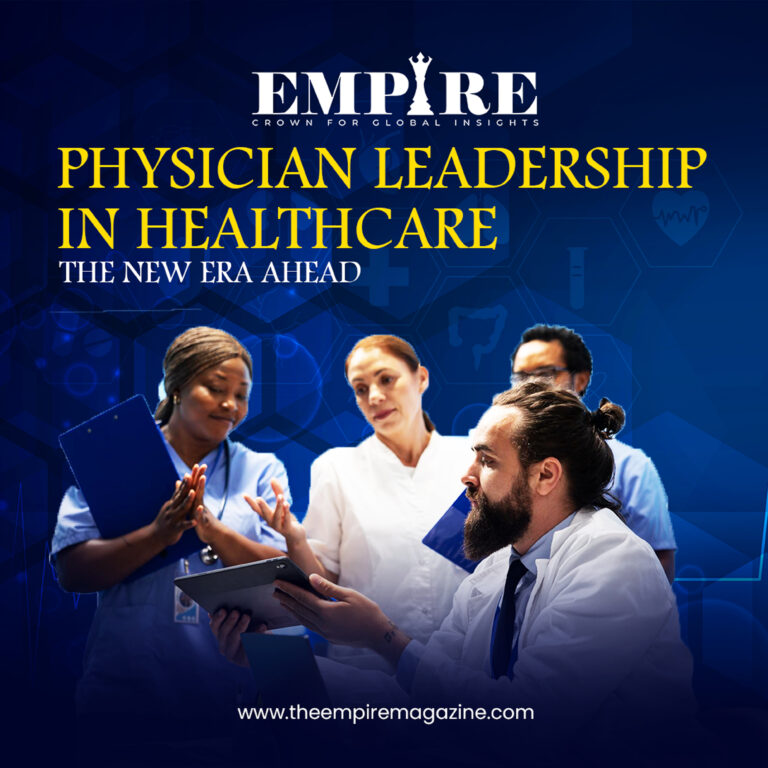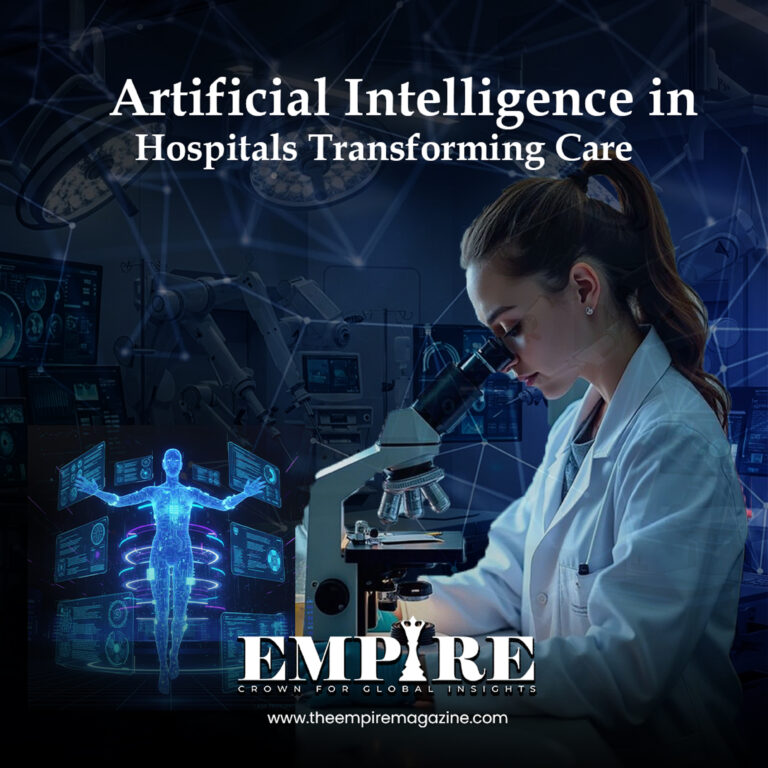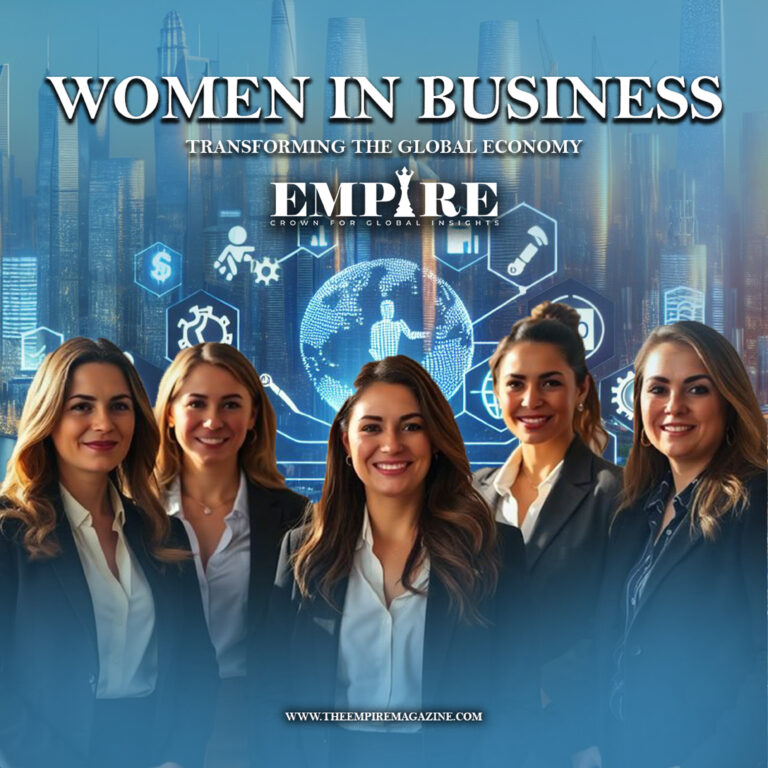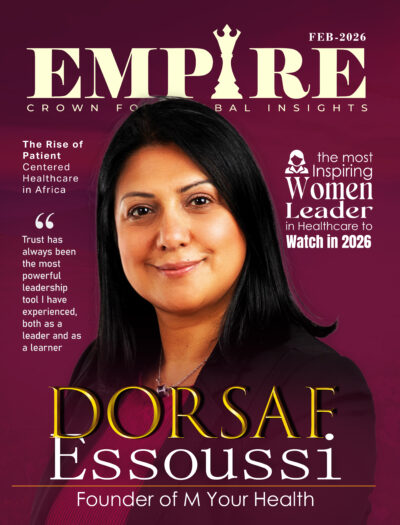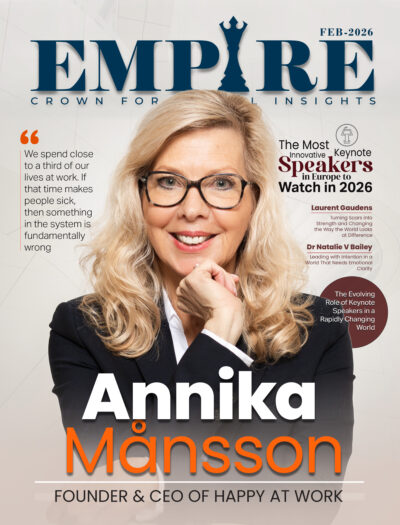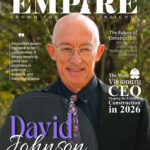Lakshmi Kuttippurathu: Blending Disciplines at the Intersection of Physics, Biology, and Human Impact

Some of the most profound breakthroughs come not from rigid specialization but from the ability to see connections across disciplines. Nature itself operates in layers, weather patterns, ecosystems, and even human cognition functions as intricate systems where no single element exists in isolation. Understanding these complexities requires more than just expertise in one field; it demands a mindset that embraces multiple perspectives, recognizes hidden links, and approaches problems holistically. True innovation often lies at these intersections, where structured logic meets organic unpredictability.
This very ability to bridge worlds defines Lakshmi Kuttippurathu’s journey. Trained as a physicist, Lakshmi, now a Computational Biologist, was drawn to the clean precision of equations, where each variable had a role and every outcome was predictable. But when biology entered her world, it disrupted this certainty, introducing her to a universe where the rules weren’t rigid but adaptive, where the answers weren’t definitive but dynamic. Lakshmi’s career has been about translating structure into meaning. Whether in academia or industry, she remains committed to making science not just a tool for discovery but a force for real-world impact.
Weaving Equations into Life’s Fabric
Lakshmi began her scientific journey deeply immersed in computational physics, mastering equations that neatly explained the universe. Yet, her path shifted dramatically after her graduate years when she found herself captivated by biology’s nuanced complexities. Initially, it was the simplicity of physics equations that fascinated her, offering clear models for intricate phenomena. But soon, the dynamic nature of biology drew her in, revealing how interconnected factors like genes and genomic changes shaped life’s outcomes in unpredictable ways.
Post her graduate studies, Lakshmi encountered biology through a unique project on DNA binding, marking the beginning of a slow yet significant shift in her focus. While physics provided her foundational skills, biology demanded a broader, holistic viewpoint, a challenge that she readily embraced. Recognizing biology’s complexity, she understood that isolated equations could no longer suffice; instead, understanding required grasping systems in their entirety.
Determined to tackle complexity head-on, Lakshmi delved deeper into systems biology, marrying her physics background with new insights from biology. Her passion drove her toward two key fields: liver regeneration and neuroscience. In liver biology, she integrated modeling, bioinformatics, and data analysis to unravel the secrets of regeneration, applying analytical rigor to biological complexity. Neuroscience captured her interest with its challenges, particularly the peripheral nervous system’s mysteries around the heart. Collaborating with fellow scientists, she explored these complexities with enthusiasm that continues even today.
Lakshmi’s career then transitioned to the pharmaceutical industry, pushing her beyond familiar academic boundaries. Navigating industry challenges required her to think differently, shifting her focus from specialized academic research to broader, impactful clinical applications. Despite this shift, her foundational principles remained constant: understanding systems holistically, acknowledging complexities and applying diverse scientific methods.
Transforming Knowledge into Lasting Impact
Lakshmi describes her journey as one rooted deeply in curiosity and the desire to bridge the gap between mechanical learning and meaningful understanding. Coming from a background where education was predominantly seen as rote and mechanical, her initial motivation was simply to learn, understand deeply, and share knowledge authentically.
Lakshmi emphasizes the significance of building a collaborative community, one where academia and industry join forces toward common goals. She emphasizes the potential of harnessing vast biological data available today, stressing the importance of bringing these data sets together in a coherent, impactful manner.
She finds deep value in fostering communities, be it educational or scientific, where collective growth and collaborative efforts towards a shared vision become paramount. Mentorship and the transfer of experiences to the next generation hold special importance in her current mission.
In essence, her evolving mission encapsulates collaboration, community-building, and nurturing future leaders to create lasting, meaningful change.
Influence Rooted in Quiet Strength
From early on, Lakshmi found her strongest influence in her father, a professor and a humanitarian whose life revolved around empowering others. She vividly recalled moments when he prioritized the well-being of others, tirelessly working even through challenging health conditions. One of his defining qualities was his ability to remain deeply involved yet gracefully detached from outcomes, an approach that profoundly influenced her. This philosophy forms the core of the leadership style she continuously strives toward, mirroring her father’s quiet yet powerful influence that shaped her perspective on life and work.
Beyond Boundaries, Into Breakthroughs
Two things really stand out when it comes to how Lakshmi approaches her work, one deeply personal, the other rooted in her professional training. On a personal note, Lakshmi’s journey wasn’t smooth or straightforward. Growing up, she didn’t have role models to follow or resources readily available, making the path forward feel challenging and solitary. Yet, this adversity shaped her into someone who thrives in complexity, possessing a distinct engineering mindset that pushes her to turn constraints into opportunities.
Professionally, her PhD in physics gives her a unique vantage point. It’s not just about understanding the nuances of physics; it’s about embracing a problem-solving approach that’s analytical yet holistic, blending biology with computational and mathematical reasoning. Unlike those who see science through narrow lenses, Lakshmi embraces an interdisciplinary approach, excitedly marrying technology with biology, physics, and practical application. Her passion for technology goes beyond obligation; it’s a natural enthusiasm for continuous learning, engagement, and knowledge-sharing within the scientific community.
Ultimately, Lakshmi doesn’t treat her role merely as a job or career step but as an extension of her identity. Her drive to mentor, educate, and influence others stems from a deeper sense of purpose. She believes that, through persistent effort and genuine passion, she’ll soon be in a position where her actions create meaningful and lasting change, a goal she wholeheartedly embraces as part of her life’s purpose.
Conquering the Hidden Walls of Bias
Lakshmi grew up in a place where expectations for women were rigidly defined. People around her believed that a woman’s life should follow a certain script, which rarely included academic ambition. But Lakshmi wasn’t content living by someone else’s narrative. Her path was constantly fraught with challenges, not just external ones like language barriers and lack of role models, but deeper, internal struggles that she had inherited unconsciously from the society around her. The subtle biases, often internalized from childhood, whispered doubt into her heart.
Breaking these invisible barriers was perhaps the hardest part, but Lakshmi discovered something powerful along the way. As she began to challenge her inner doubts, the external limitations started to crumble, too.
Today, her motivation comes not from simply overcoming these barriers for herself but from her hope to guide others, young women still questioning their own paths and possibilities. By sharing her experiences, Lakshmi hopes to illuminate the way for those still trapped in uncertainty, quietly whispering to them that if she could overcome, so could they.
Clarifying Misconceptions, Defining Clearer Boundaries
Lakshmi highlighted a few common misconceptions surrounding bioinformatics and computational biology, explaining clearly where each stand and how they’re unique. People often assumed they were essentially the same, she explained, but subtle differences set them distinctly apart. Bioinformatics, she clarified, primarily revolves around harnessing data, be it omics, clinical, or other biological forms, to achieve precise outcomes. It’s an approach centred around data manipulation, methods, and algorithms. Common misconceptions about bioinformatics are: one does not need to know coding to master bioinformatics, software will do the job and all bioinformatics problems require machine learning.
Computational biology, however, she pointed out, involves a deeper dive into the biological underpinnings. It’s more hypothesis-driven, rigorous, and comprehensive, demanding not just statistical and biological modelling expertise but the skill to frame questions, solve problems and articulate narratives from complex information. Lakshmi particularly underscored how defining the right question is often half the battle, a skill she’d sharpened throughout her academic journey.
Steering Discoveries Through Data and Determination
Reflecting on a pivotal journey in her career, Lakshmi recalled a series of defining moments from recent years that reshaped her approach to work and her field. Beginning with designing and then taking the helm of a significant project, she embraced new methodologies and techniques that stretched beyond her comfort zone, shifting her mindset from an academic’s theoretical viewpoint to a hands-on, practical approach. This evolution challenged her to balance vast amounts of intricate information, always staying attuned to the central goal of discovery of therapeutic targets that has the potential to cure diseases.
She particularly treasured working with the exceptional “Genome 5000” dataset, a remarkable repository built painstakingly by many scientists over a decade. Having such substantial, valuable data at her disposal felt like uncovering hidden treasure, inspiring her to innovate and create projects for therapeutic target discovery. While Lakshmi cherished collaborative projects, it was the ownership, responsibility, and leadership she experienced over the last three years that stood out as transformative, making this period uniquely fulfilling and pivotal in her professional growth.
Holding Hope Through Changing Tides
In a world increasingly cluttered with distractions and uncertainties, Lakshmi emphasizes the importance of staying focused on what truly sparks one’s curiosity. The scientific landscape, particularly for young aspirants, has become a complex maze of challenges and overwhelming digital noise. She speaks from experience, urging budding scientists to avoid being swept away by external chaos and instead immerse themselves in their field of interest. Her own career has been a testament to this principle, transitioning across disciplines without ever losing sight of what excites her.
Beyond technical expertise, Lakshmi underscores the need for personal growth to complement professional development. She believes that the lines between personal and professional lives are not as distinct as they seem. As generations progress, the emphasis must shift towards holistic growth, leveraging the luxuries that previous generations fought for.
The field of computational biology is vast, she notes, with ample opportunities across intersections of technology, data, and life sciences. Finding one’s niche, mastering statistical foundations, and embracing programming as a tool rather than a barrier is crucial to thriving in the domain.
It is a known fact that AI is going to transform health care industry. Addressing concerns around the AI revolution, Lakshmi encourages young minds to approach it with a problem-solving mindset; mastery comes from applied learning, not from accumulating countless courses. While machine learning has great potential in healthcare, its application can be hindered by a lack of large, high-quality biological/clinical datasets that accurately represent real-world data, which can lead to models “overfitting” to the limited data they are trained on leading to poor performance.
For women in science, Lakshmi acknowledges the growing representation yet recognizes that parity remains a work in progress. She hopes to see more female scientists and leaders entering the space, believing that diverse perspectives will accelerate meaningful change. As for the legacy she hopes to leave behind, her ambitions span multiple dimensions, from making sense of the vast and often chaotic influx of data in her field to contributing to breakthroughs in medicine, particularly in the neuroscience domain.
Equally passionate about mentorship, Lakshmi envisions a collaborative scientific community where knowledge is shared freely and young minds are nurtured from an early age. Her aim is clear: to create, contribute, and cultivate the next generation of scientific thinkers, ensuring that passion and purpose guide the future of discovery.
Reading Life’s Signals for a Better Future
Lakshmi shared a topic that she holds close to her heart, one that extends beyond systems biology and into the realm of personal growth. She spoke passionately about the mind-body connection, emphasizing how understanding the way the brain interacts with the body can empower individuals to navigate life more effectively. In a world dominated by social media distractions, she noted how many young people struggle with focus and resilience. For her, recognizing the body’s signals and applying that awareness to create one’s own path is a skill that will become increasingly valuable for future generations.
While her expertise lies in computational biology, Lakshmi’s interests go beyond the scientific realm. She is deeply drawn to mindfulness, centering oneself, and managing stress, principles she has not only studied but also applied in her own life. Though this perspective differs from her work in bioinformatics, she believes it holds immense relevance in shaping a well-rounded approach to both professional and personal challenges.
Follow Lakshmi Kuttippurathu on LinkedIn
Follow The Empire Magazine on LinkedIn

